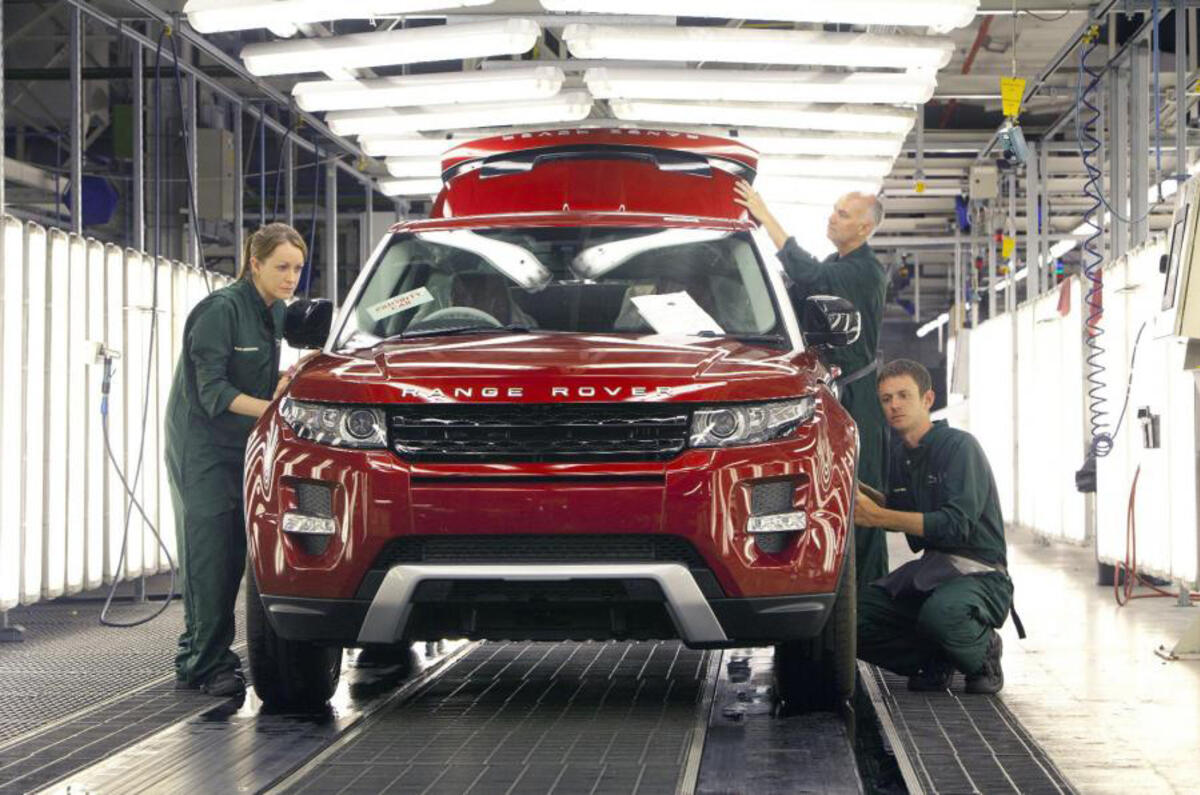Jaguar Land Rover (JLR) will not renew the contracts of 1000 agency workers at its Solihull facility due to industry challenges caused by falling diesel car sales.
JLR is holding meetings today with staff to discuss the changes, which it said are the result of “continuing headwinds” that have forced the company to make "adjustments to production schedules and the number of agency staff”.
In a statement issued on Friday before the number of staff losses was confirmed, JLR said: “We are, however, continuing to recruit large numbers of highly skilled engineers, graduates and apprentices, because we are overproportionally investing in new products and technologies.
“We also remain committed to our UK plants, in which we have invested more than £4 billion since 2010 to future-proof manufacturing technologies to deliver new models.”
Britain’s biggest car manufacturer employs 40,000 people in the UK, of whom a quarter work at the Solihull plant.
Meanwhile, around 360 workers at the Castle Bromwich factory, which builds Jaguar models, are set be relocated to Solihull. The move is attributed to declining output at Castle Bromwich as demand for new cars falls.
Long-standing effects of the ongoing diesel emissions scandal, which include the raising of tax on diesel cars, have driven down demand for diesel cars, so they now represent just 33.5% of the new car market, down from a 44% share last year. Diesel demand fell by 37.2% last month.
Jaguar's XE and XF are understood to have been hit most heavily, although almost every model has been affected because diesels account for around 90% of JLR's sales.
This year has been one of major contrast for JLR. Following a record-breaking 2017, in which the company sold 621,109 cars, Jaguar demand is currently down 26% year to date, while Land Rover – the bigger brand within the group – has lost a fifth of demand in the UK.
Professor David Bailey of Aston University, an expert in the car industry, said that the latest sales results have hit JLR particularly hard, although he highlighted the brand's ongoing international success.
"It’s important to recognise that, globally, the firm is still doing very well; it’s still investing heavily in new technology and it’s still hiring engineers, apprentices and graduates," he said. "But there’s no getting away from the impact that the Government’s diesel tax has had, sowing extra confusion among drivers who are holding off on replacing diesels."
In January, JLR said that it would cut production numbers at its Halewood plant due to slowing new car sales – something that a company spokesman linked to "concern around the future of petrol and diesel engines" and "general global economic and political uncertainty”.
JLR’s response to changing market demand is already under way, with its first purpose-built electric vehicle, the Jaguar I-Pace, due on roads this summer. The firm has pledged to produce an electrified variant of every model in its range by 2020 as it "works towards a cleaner future”.
More content:
